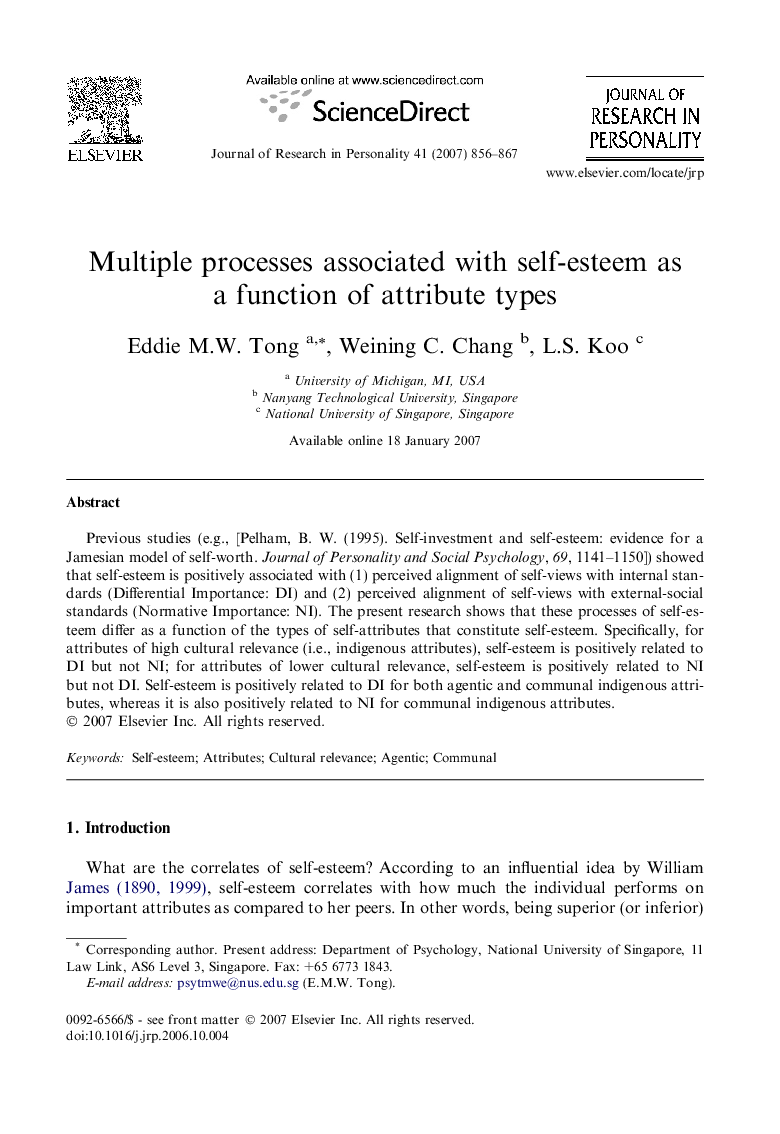| کد مقاله | کد نشریه | سال انتشار | مقاله انگلیسی | نسخه تمام متن |
|---|---|---|---|---|
| 952142 | 927279 | 2007 | 12 صفحه PDF | دانلود رایگان |

Previous studies (e.g., [Pelham, B. W. (1995). Self-investment and self-esteem: evidence for a Jamesian model of self-worth. Journal of Personality and Social Psychology, 69, 1141–1150]) showed that self-esteem is positively associated with (1) perceived alignment of self-views with internal standards (Differential Importance: DI) and (2) perceived alignment of self-views with external-social standards (Normative Importance: NI). The present research shows that these processes of self-esteem differ as a function of the types of self-attributes that constitute self-esteem. Specifically, for attributes of high cultural relevance (i.e., indigenous attributes), self-esteem is positively related to DI but not NI; for attributes of lower cultural relevance, self-esteem is positively related to NI but not DI. Self-esteem is positively related to DI for both agentic and communal indigenous attributes, whereas it is also positively related to NI for communal indigenous attributes.
Journal: Journal of Research in Personality - Volume 41, Issue 4, August 2007, Pages 856–867